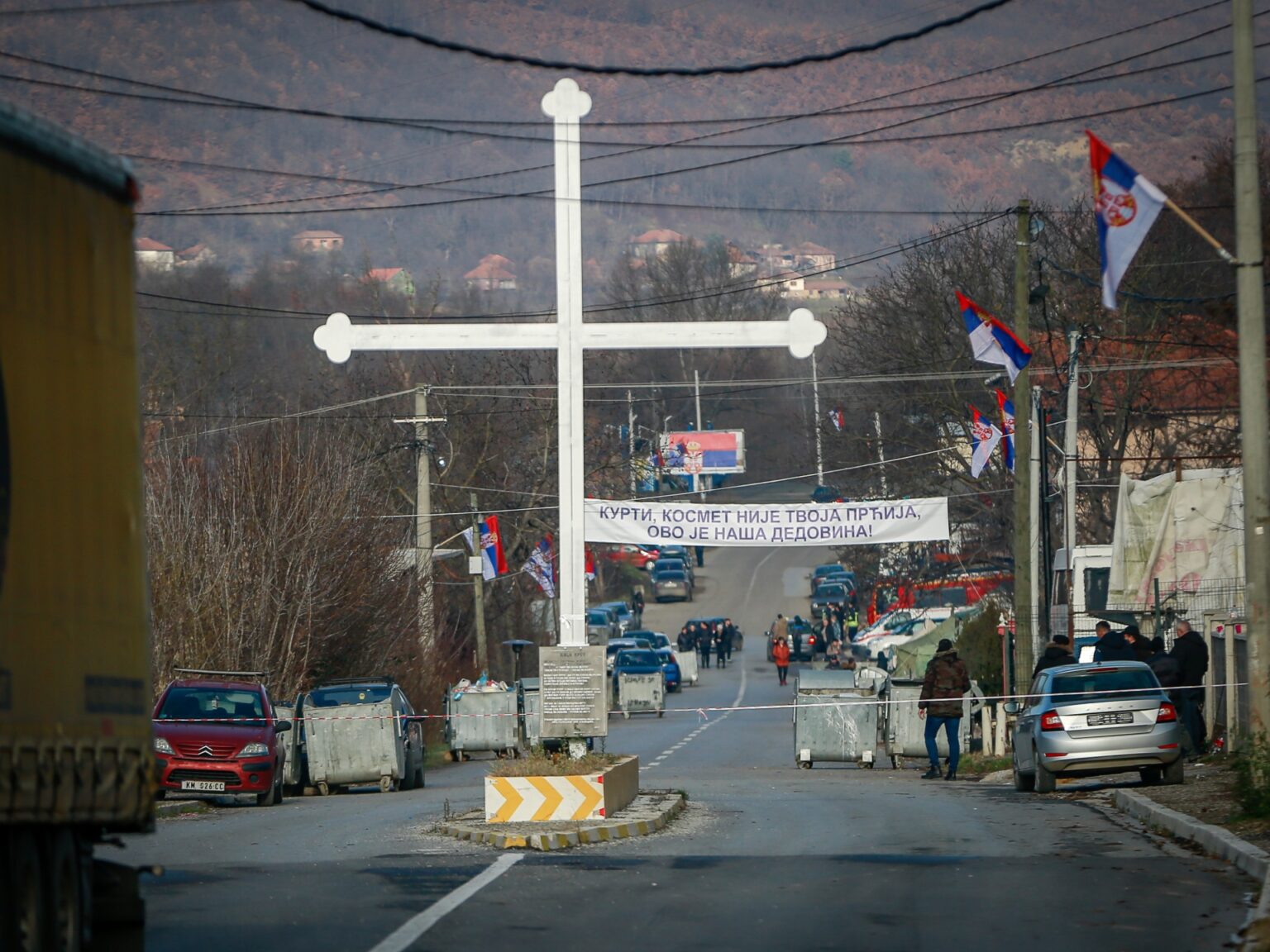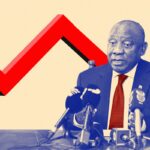Global Courant 2023-05-26 18:42:53
Police in Kosovo tear gas small groups of ethnic Serbs trying to block the entrance to municipal buildings.
Small groups of ethnic Serbs in northern Kosovo clashed with police as they tried to block the entrance to municipal buildings to prevent recently elected officials from entering, according to local media.
Police fired tear gas on Friday and several cars were set on fire.
In response to the clashes, Serbian President Aleksandar Vucic said in a written statement on state-run RTS television that he had put the army in a “higher state of readiness”.
Vucic also said he had ordered an “urgent” movement of Serb troops to the Kosovo border.
The media also reported that due to “violence” against Kosovo Serbs, Vucic demanded that NATO-led forces stationed in Kosovo protect them from Kosovo police.
Kosovo police officers patrol the bridge that separates southern Albania and the northern Serb-dominated part of the ethnically divided Kosovo town of Mitrovica (File: Visar Kryeziu/AP)
Kosovo police acknowledged their increased presence in the north “to assist mayors of the northern municipalities of Zvecan, Leposavic and Zubin Potok in exercising their right to work at the official objects”.
New mayors in three municipalities in northern Kosovo, which is largely populated by ethnic Serbs who form a minority in the larger country, were prevented from entering the buildings by small groups of Serbs who held up their hands at the entrance to the municipalities, apparently in a sign that they weren’t there to engage in violence, the Albanian website indexonline.net wrote, which also showed photos.
In Zvecan, the Kosovo-online.com site showed clashes with police in front of the public building, while in Leposavic they had also blocked the main square with cars and trucks.
Earlier, Serbs also sounded their alarm sirens in the four municipalities, including in the main northern town of Mitrovica, in a warning sign and call to assemble.
Local elections
The 23 April snap elections were largely boycotted by ethnic Serbs and only representatives of ethnic Albanians or other smaller minorities were elected to mayoral posts and assemblies.
Local elections were held in four Serb-dominated municipalities in northern Kosovo after Serb representatives left their posts in protest last year and the Serbian community demanded the creation of a pledged association of Kosovo Serb municipalities to accelerate work in the area. of education, health care, spatial planning and economic development at the local level.
With Kosovo’s ethnic Serbs demanding autonomy, Kosovo Albanians fear the association will turn into a new mini-state like Srpska Republika in Bosnia.
The creation of the association was originally part of the 2013 Pristina-Belgrade agreement, but was later declared unconstitutional by Kosovo’s Constitutional Court, which ruled that other ethnicities were not included and that the use of executive powers to legislate laying could entail.
The two sides have tentatively agreed to support an EU plan moving forward, but tensions have continued to simmer.
Both the United States and the European Union are pressuring Kosovo over the association issue.
The US and the EU have stepped up efforts to resolve the dispute between Kosovo and Serbia, fearing further instability in Europe as the war in Ukraine rages.
The EU has made it clear to both Serbia and Kosovo that they need to normalize relations in order to make progress in their intentions to join the bloc.
The conflict in Kosovo broke out in 1998 when separatist ethnic Albanians revolted against Serbian rule, and Serbia responded with brutal action.
About 13,000 people, mostly ethnic Albanians, died.
NATO’s military intervention in 1999 eventually forced Serbia to withdraw from the area.
Washington and most EU countries have recognized Kosovo as an independent state, but Serbia, Russia and China have not.








